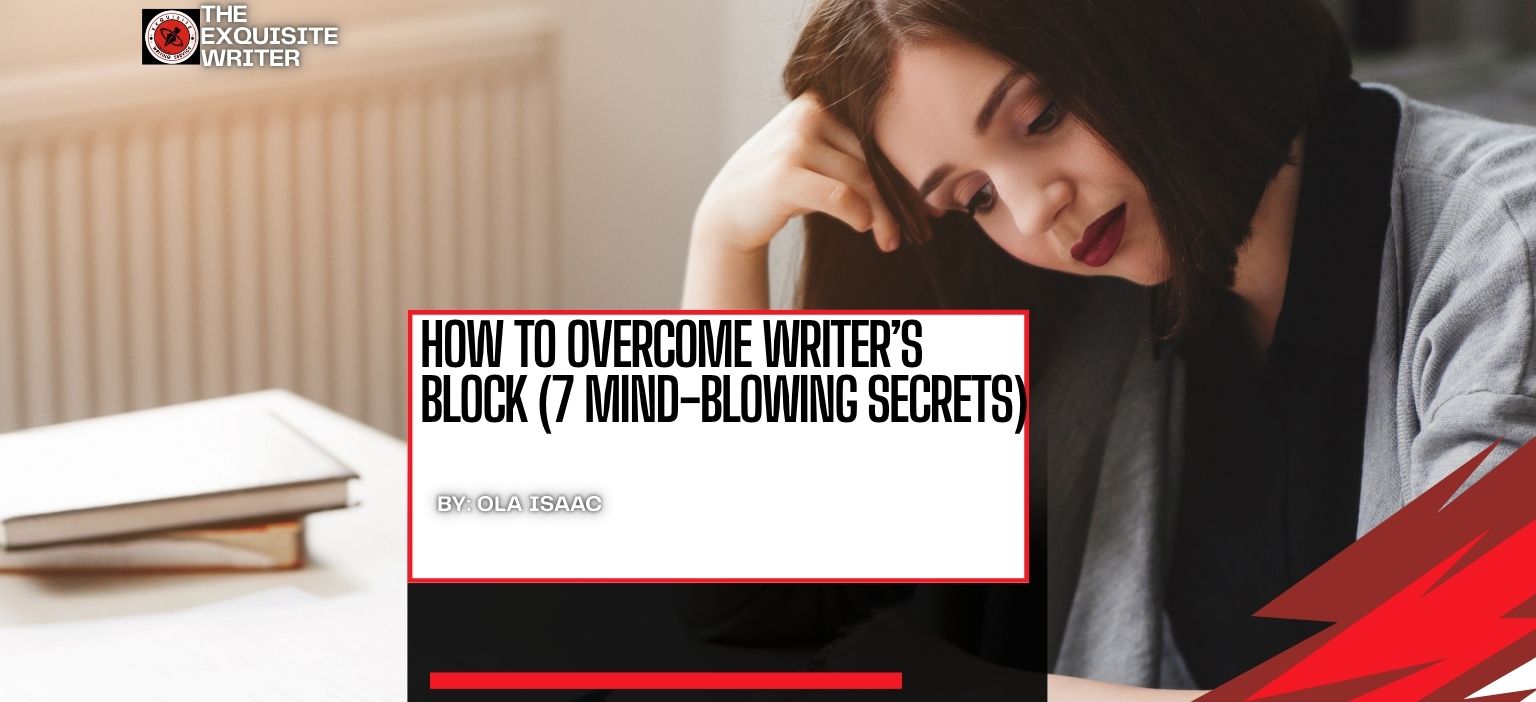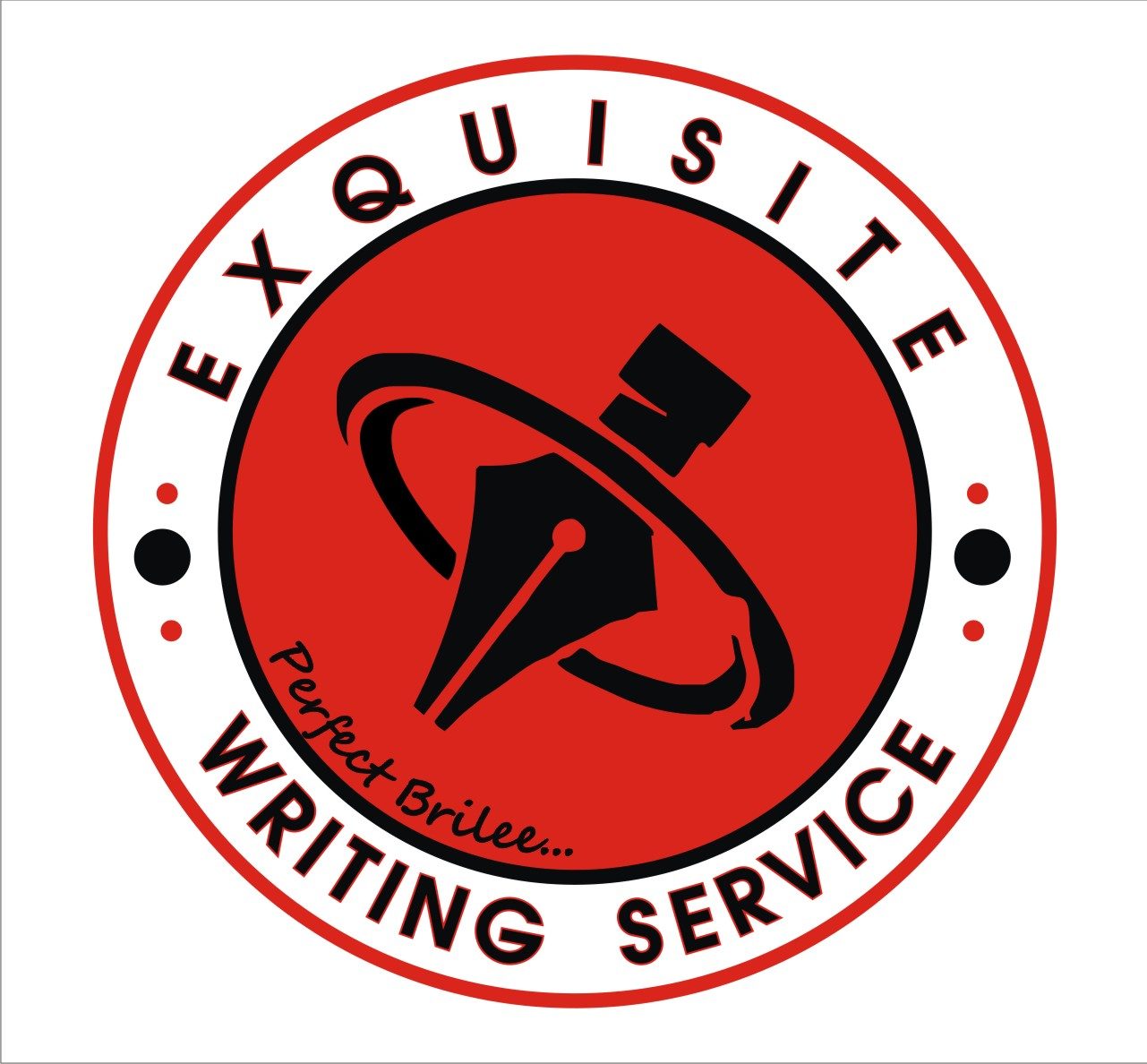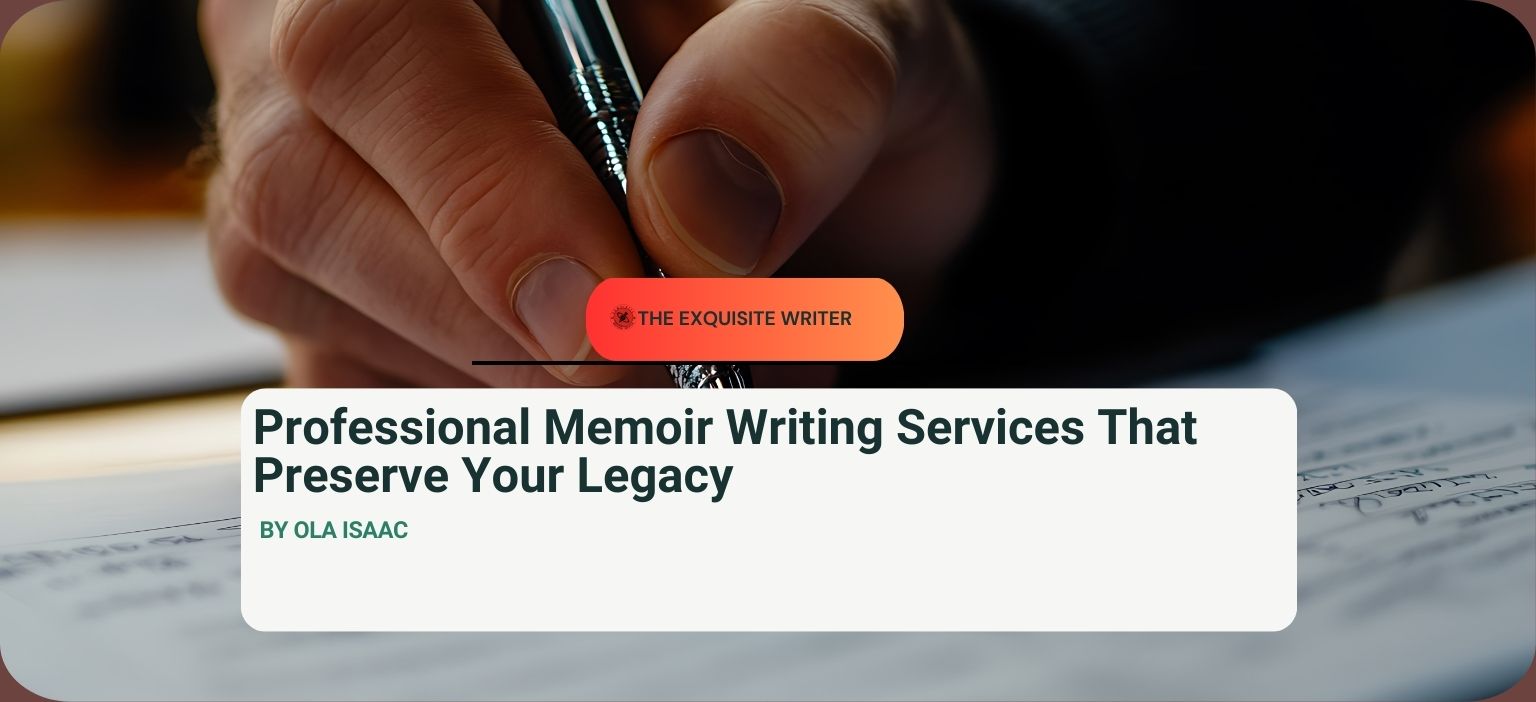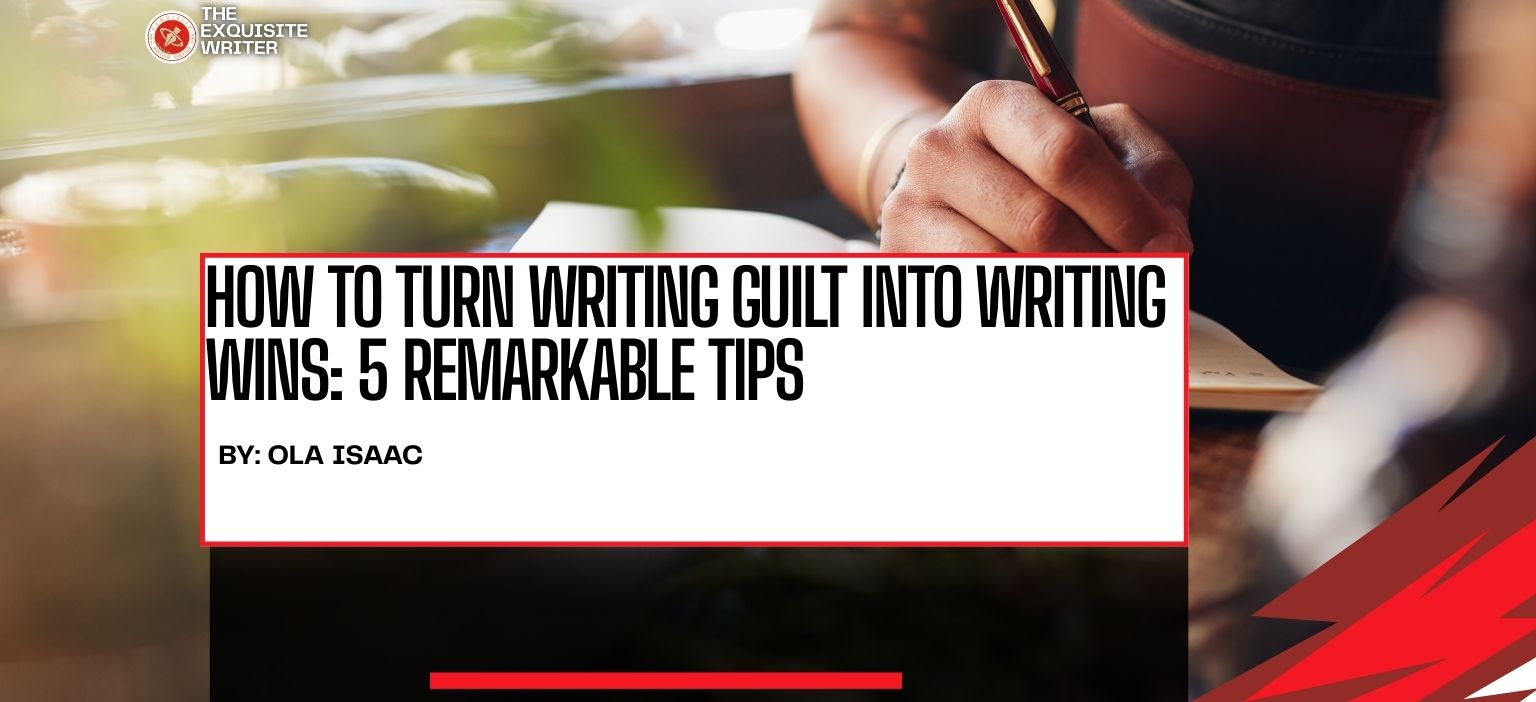
How to Overcome Writer’s Block (7 Mind-blowing Secrets)
You’ll love our new ideas on how to overcome writer’s block when it hits, even if you’ve tried dozens of methods before!
We’ve all been there: You’re writing one of your best pieces of copy, and then it strikes—you can’t form sentences, and the next big idea wouldn’t just come.
Yes, this can be a constant battle, and you will win, whether writing a book, blog post, or any other writing project.
Many writers have found practical ways to push through; they now write thousands of words daily without hitting writer’s block.
Their proven strategies, combined with practical insights from The Exquisite Writing Services team, are featured in this article.
So, fasten your seat belt and explore the straightforward tips on how to get over writer’s block!
All practical suggestions on how to overcome writer’s block are verified by The Exquisite Writer editorial team (2025).

Why You Experience Writer’s Block
Writer’s block is when a writer hits a mental block—sentences, words, and content stop coming.
It can be very frustrating, especially when writing a project with deadlines and more pressure.
You might sometimes wonder if something is wrong with you for feeling that way. Well, no! It’s completely normal.
But at the same time, you can minimize or even prevent it.
There isn’t just a single reason why a writer can hit Writer’s block.
You might hit the block because of a reason or the merging of several reasons!
Generally, writer’s block can be caused by:
- Lack of adequate sleep—leading to lethargy
- Not taking sufficient breaks—-for brain resetting
- The rush to complete a project with little to no planning or guidelines.
- A poor diet, inadequate exercise, or excessive caffeine intake can also contribute.
- Pressure from customers, yourself, or others.
Whatever is responsible for your writer’s block, the most important thing is to fix it!
So, let’s talk about what to do when you have writer’s block.
How to Overcome Writer’s Block in Simple Ways
Here are simple yet mind-blowing practical tips on how to overcome writer’s block:
1. Start Every Writing Project With a Skeleton of the Task
How often do you stare at a blank piece or a white screen, trying to draft the first thought that came to your mind?
Most writers have experienced this many times. But the truth is this: An attitude like this contributes to writer’s block.
Rather than slowing down your writing process this way, you can speed it up and avoid mental blocks by creating a skeleton of the writing project.
Take this post, for example: At the start, the headings were carefully selected and sectioned.
That way, it was easier for the writer to start writing because they knew precisely what they wanted to write about.
That’s much better than sitting dumbfounded and trying to come up with a point.
This start will provide a bigger leap off mental block since most mental block starts with the effort to try new ideas on the spot.
Creating a skeleton of the writing project will save you time and energy since you have planned your writing.
Meanwhile, the way different writers approach this might differ. Your approach will depend on your material, writing style, and what rocks your boat.
But irrespective of the format, take these steps into mind:
- Step 1: Plan your headings, sections, or chapters ahead of time.
- Step 2: Map out subheadings
- Step 3: Gather resources, references, and other materials for every section you intend to write. What’s next?
- Step 4: Enjoy your writing!
2. Take a Break
The longer you stay on a writing project, the fewer resources your brain will allocate toward the project. The way out?
Take a break to clear your mind—and you don’t even have to wait until you hit writer’s block.
This is backed by science: Taking breaks refreshes the brain and helps it stay productive in the long run.
It’s not hard to understand why. Our brains are marvelously designed to handle quick tasks and migrate to the next one.
So, taking strategic breaks can help you achieve your goal without hitting writer’s block, even if you have 10,000-word articles to write.
But by taking breaks, I’m not suggesting Netflix or playing games for hours.
So, what am I talking about? I’m talking about these:
- Quick walk
- Grabbing a coffee
- Reaching out to a friend
- Exercise
- Or handling a short task in your to-do-list (I’m so big on this)
Well, is a short nap recommended? Sure, you can give it a shot!
3. Get Out in Nature
This tip on how to overcome writer’s block builds on taking breaks. Going for a hike, bike ride, or walk in nature can reset your mindset.
Research backs this up. A 2021 narrative review in IJERPH found consistent connections between nature exposure and improved cognitive performance, reduced stress, and emotional well-being.
The Attention Restoration Theory suggests that natural settings allow our overworked attention systems to recover and replenish focus.
Each time I walk in nature, I usually feel more inspired and calm when returning to writing. So, if there are trails or green spaces near you, try stepping into them—even a short walk can help reshape your mindset before resuming your project.
Yes, going for a hike, bike ride, or running through nature is one great way to overcome writer’s block!
There is a lot about earthy browns, booming sea of green, and crystal blue sky that can feel therapeutic to bask in.
Therefore, if there are hiking paths, local nature trials, or something similar where you live, take breaks there.
A simple and quick stroll can add to your awesomeness before you resume your projects.
4. Switch Up Your Environment
Let me ask you this: Can you sit in one place for too long? If you are like me, I can’t do that!
Not long after, I’ll start itching to see new things, be in a new place, and see new people.
If you feel exactly like this sometimes, it’s recommended that you change your environment.
If you work remotely, can you make it hybrid?
For example, you can work from home on some days, and on other days, you can spend your writing time at a coffee shop, a coffee shop, or a local workstation in your community.
If you are still a student, working at the college campuses is helpful.
There, the whole energy is about productivity, helping you get things done just when you want it.
In addition, when you leave home, there is a level of accountability that comes with that, as you’d feel that you have dedicated your time to go somewhere else, and as a result, your effort must be worth it.
However, switching up an environment does not have to be about leaving a completely new environment for a different one.
You can still switch environments even inside your home.
For example, If you have a dedicated space for your writing, can you try your terrace? Or even under your shade during a sunny day?
The most important point here is to simply make the environment feel new, unlike the regular one you are used to.
5. Get Rid of Distractions
Televisions, phones, and social media are so much fun—but they can waste your time!
So, let’s do some honest assessment:
How much time do you spend on Facebook, Instagram, Twitter, or other social media platforms instead of writing?
Perhaps they seem to be the easiest route for you when you hit the block.
But at other times, this distraction could have been the basis for your writer’s block, preventing you from giving your project 100% attention.
Constant checking of social media networks or even watching a movie would break your chain of thought and the momentum you have gathered.
That’s why this tip on how to overcome writer’s block is so essential!
And if you need help with winning against distraction, read this mind-blowing article on distraction-free writing devices—it’s helped seasoned writers, and it’s your turn!
If you are pressured to check your phone:
- Remind yourself that you’d do that during your strategic break.
For new copywriters and some great writers, you will need consistent training to win over.
6. Steer Clear of Superlatives
A superlative is simply a hyperbole or an exaggeration often used in writing.
Sadly, as good as they might be, superlatives hinder your workflow and shrink your creativity when used.
Superlative prevents you from thinking harder. For example:
- This is the fastest car on earth.
- This car, in less than 2 seconds, can go from 0 to 60 mph, thanks to its powerful 12-cylinder engine.
What did you notice? The first example summed up the sentence without being descriptive. Consistent practice of the first example will contribute to writer’s block.
However, you can avoid this by implementing some of the suggestions highlighted in this article about how to overcome writer’s block.
7. Share What You’ve Written
Feedback loops are key — even National Institutes of Health. research shows external feedback helps strengthen motivation and creativity.”
A recent study published in ScienceDirect (2025) found that receiving evaluative feedback significantly improved creative elaboration in tasks.
As a copywriter, make it a practice to share your content or projects with family and friends to get their opinions and input.
Are they not seasoned writers? That isn’t a problem.
An extra eye may notice things you don’t, helping you with your finished project.
You can also realize that some suggestions offer your brain food to prevent it from hitting writer’s block.
Final Thoughts
These methods on how to overcome writer’s block are drawn from professional copywriters, editors, and writing coaches who’ve tested and refined them over years of experience.
With the tips you have explored on how to overcome writer’s block in this article, you can now write with less mental block!
It doesn’t matter whether you are a student, a direct response copywriter, or a hobbyist.
While writer’s block will come at some point, you will gradually reduce it to the barest minimum as you work hard on these suggestions in this article.
Remember these tips on how to get over writer’s block:
- Plan your content well – Make sure you get every detail ready
- Take strategic breaks – it’s as important as the content you are writing
- Get out in nature to refresh your brain
- Change your writing environment
Get rid of any distractions slowing you down, have an honest assessment, and stick to the changes you need to make.
Happy writing!




5 Comments
Pingback:
Pingback:
Pingback:
Pingback:
Pingback: